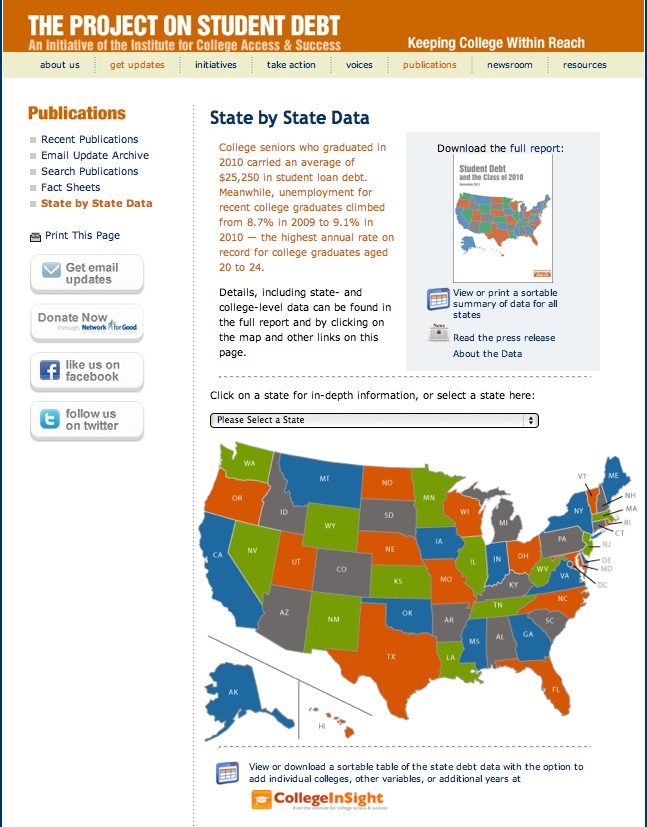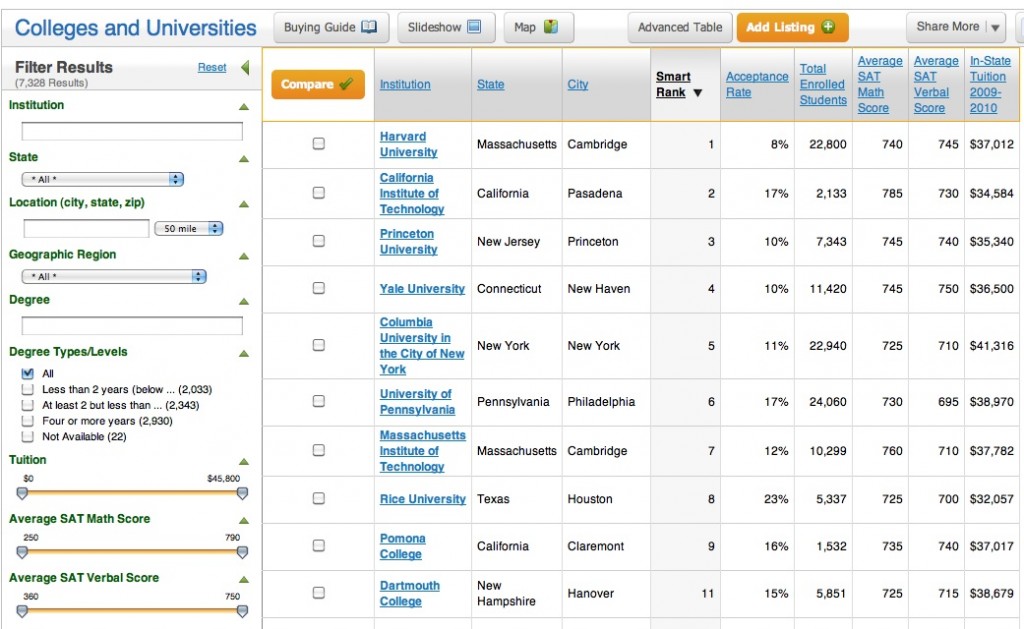Last week, I was a guest on #CollegeCash chat on Twitter discussing college preparation and the online resources that are available for parents and students. Since not everyone can attend these chats or is active on Twitter, I thought it would be nice to share the questions and answers here on my blog.
Question: When do parents start the college prep process?
- Ideally you should start talking to your student about the value of an education when they start school and amp it up in middle school.
- 9th grade students should pay close attention to course selection enrolling in AP honors classes, math and science.
- 9th graders should also start looking for that ONE extracurricular activity to concentrate on in high school.
Question: What do you see as the parent’s role in the college prep process?
- Parents should let the student “drive the car” but go along as a passenger/guide
- Parents can help with organization and gentle reminders regarding deadlines
- Parents need to be there for advice, support and questions but don’t take control of the process
Question: What online tools do you recommend for comparing colleges side-by-side?
- I love Zinch because you can create a profile, compare colleges and get matched w/colleges and scholarships http://www.zinch.com
- You can use the College Board’s tool to compare colleges as well http://collegesearch.collegeboard.com/search/index.jsp
- Some more sites are: http://www.collegeview.com/index.jsp & http://www.collegexpress.com/ & http://www.cappex.com & http://www.collegeconfidential.com
Question: What online tools do you recommend for test prep?
- For vocabulary prep, @sheldonwordnerd has the BEST online tool available http://www.word-nerd.com
- Practice tests are imperative so take advantage of them online here http://sat.collegeboard.org/practice & http://www.number2.com/ & http://www.actstudent.org/testprep/index.html
- Read their blogs & follow on Twitter: @elizabethonline @akilbello @sheldonwordnerd @preppedpolished @PWNtheSAT @staceyhowelott
Question: What online tools do you recommend for financial aid?
- The definitive site for financial aid info is http://www.finaid.org/
- Of course ALL parents should complete the FAFSA http://www.fafsa.ed.gov/ to qualify for financial aid
- Saving for College provides parents with all the info about financial aid http://www.savingforcollege.com/ & lets you compare savings plans
Question: What online resources do you recommend for college visit preparation?
- Visit college websites and look for video tours and information related to each individual college
- @collegevisit has all the tools you need to plan, organize and prepare for college visits http://www.smartcollegevisit.com
- Before the visit you can check out @YOUniversity ’s virtual college tours and even hear from students http://www.youniversitytv.com/
Question: What online tools do you recommend to help with the essay?
- @vcollegeadvisor has some great essay tips via video http://www.youtube.com/user/PreCollegeCoach#p/a/u/0/Ago6tIEnL0g
- @collegebasics offers some good tips on different essay topics http://www.collegebasics.com/applying-to-college/admissions-essays/
- @butwait provides a pocket essay editor of 13 tips https://docs.google.com/present/view?id=ah89knd3kmzc_469cq94ghdq
- If you’re looking for some actual student essay examples, look here http://www.teenink.com/college_guide/college_essays/
Question: Where do you find information about individual college statistics?
- I like College Navigator because it’s easy to view statistics and compare http://nces.ed.gov/collegenavigator/
- Another great resource for statistics and more is CollegeData http://www.collegedata.com/
- The College Board also offers a tool to research college information http://collegesearch.collegeboard.com/search/index.jsp
Question: What information can you share about the Net Price Calculator?
- The net price calculators were mandated to help parents and students estimate the actual cost of college BEFORE applying
- Not all calculators are created equal; use them as a tool but don’t expect 100% accuracy on cost estimates
- Colleges are required to have them on their sites but they are often hard to find; you might have to do some digging
Question: How can parents be assured they are getting EXPERT advice about college and not just being scammed?
- I wrote a blog recently about this topic http://www.parentingforcollege.com/2011/11/07/parents-beware-its-a-jungle-out-there/
- Some key points: investigate all claims using Google; ask about them using social media; are they associated w/other experts?
- Don’t believe claims unless backed up with facts and if it’s too good to be true, it usually is
I would also like to add another great resource for parents, especially because it’s another parent going through the process with her kids and blogging about it:
Dr. Strange College : How I Learned to Stop Worrying and Love the Journey







![8115_imagination_challenge_150x260_en[1]](http://www.parentingforcollege.com/wp-content/uploads/2011/08/8115_imagination_challenge_150x260_en1.jpg)

